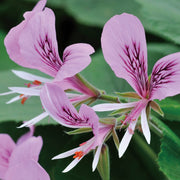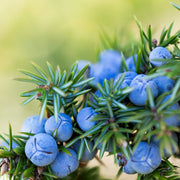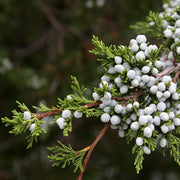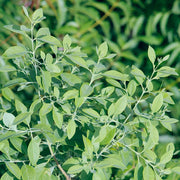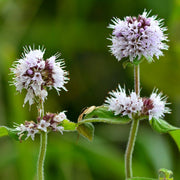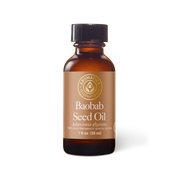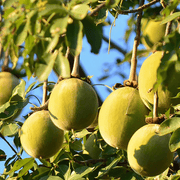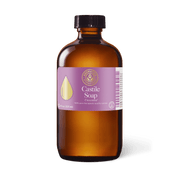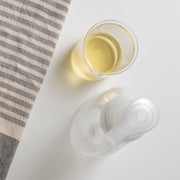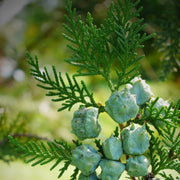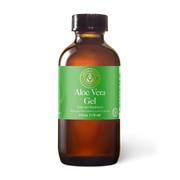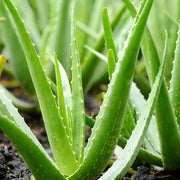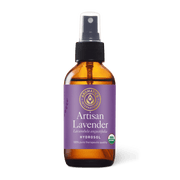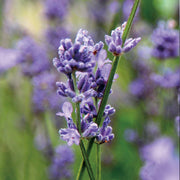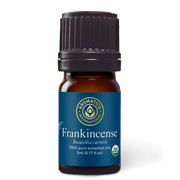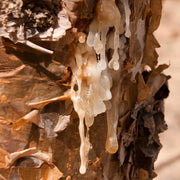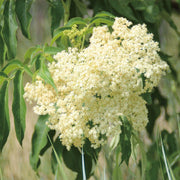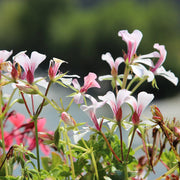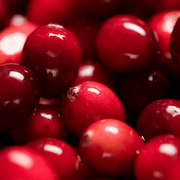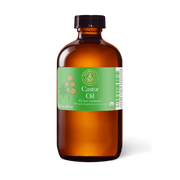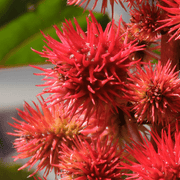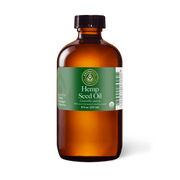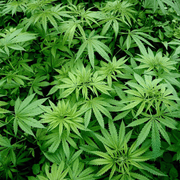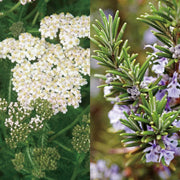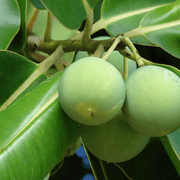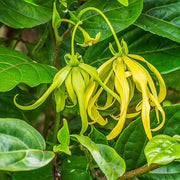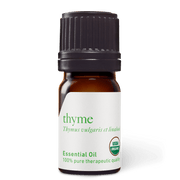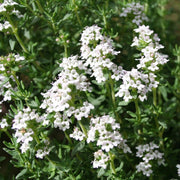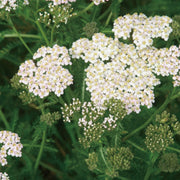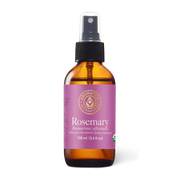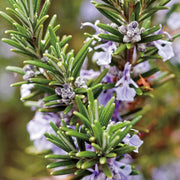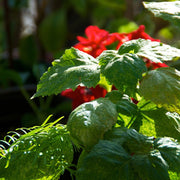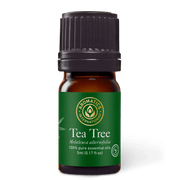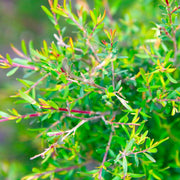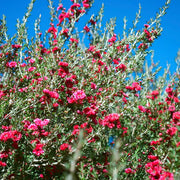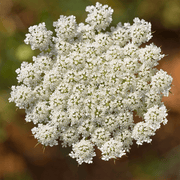I’ll walk you through which organic skin care ingredients are best for your skin type to reduce acne and oiliness, balance complexion, calm redness, and irritation, restore suppleness, and reduce fine lines and wrinkles—all the good stuff!
If you have anti-aging skin, sensitive skin, or normal skin, you can find tips for your skin type in this sister blog post .
Here’s a quick summary of this article:
- 3-Step Organic Skin Care
- Making Facial Cleanser
- Making Skin Toner
- Making Natural Moisturizer
- Essential Oils for Face Care: Safety 101!
- Acne-Prone Skin Care
- Combination Skin Care
- Oily Skin Care
I’m Karen, and I’ve been working creatively with essential oils and natural products in clinical settings, and here at Aromatics International, for over 20 years. Focusing on the scientific properties of essential oils (and other natural products) helps me use them safely and successfully for all skin types. I love the magic that happens when all aspects of chemistry are considered! It’s a beautiful kind of alchemy.
Before we jump in, I want to mention that drinking lots of water and eating a clean diet goes a long way for organic skin care and treating acne, making sure skin has what it needs to glow from within.
Now let’s talk about the organic products you can make to feed your skin!
Your 3-step process to organic skin care
Think about it from your skin’s point of view. All it really needs are three basic things: It wants to be cleansed so dirt and impurities don’t build up, toned so pores are conditioned and protected, and moisturized so it’s deeply nourished.
You can make an effective, homemade organic skin care routine with three customizable DIY essential oil products: cleanser, toner, and moisturizer.
Homemade facial cleanser
A plant-based, natural face wash removes dirt, dead skin, and impurities that can clog pores while leaving enough of the skin’s own beneficial oils in place. Use a natural face wash without alcohol or harsh soaps, so it won’t cause irritation or dry skin out by stripping away too much moisture. Using a cleanser is essential to treat acne and to ensure that you are clearing the way for essential oils for acne to do their job most effectively.
You can make your own organic, natural face wash with all-natural ingredients that have antibacterial properties like carrier oils, aloe vera gel, Castile soap, hydrosols, and essential oils. I’ll give you some specific suggestions for your skin type below.
I don’t always use Castile soap in my natural face wash recipes. I’ve found aloe vera gel and carrier oil makes an excellent facial cleanser that collects impurities and rinses them away. That said, if your skin is oily, it’s helpful to have some Castile soap in your natural face wash to help break up the oil and loosen clogged pores. Aloe vera also has anti inflammatory properties than help prevent acne scars from forming.
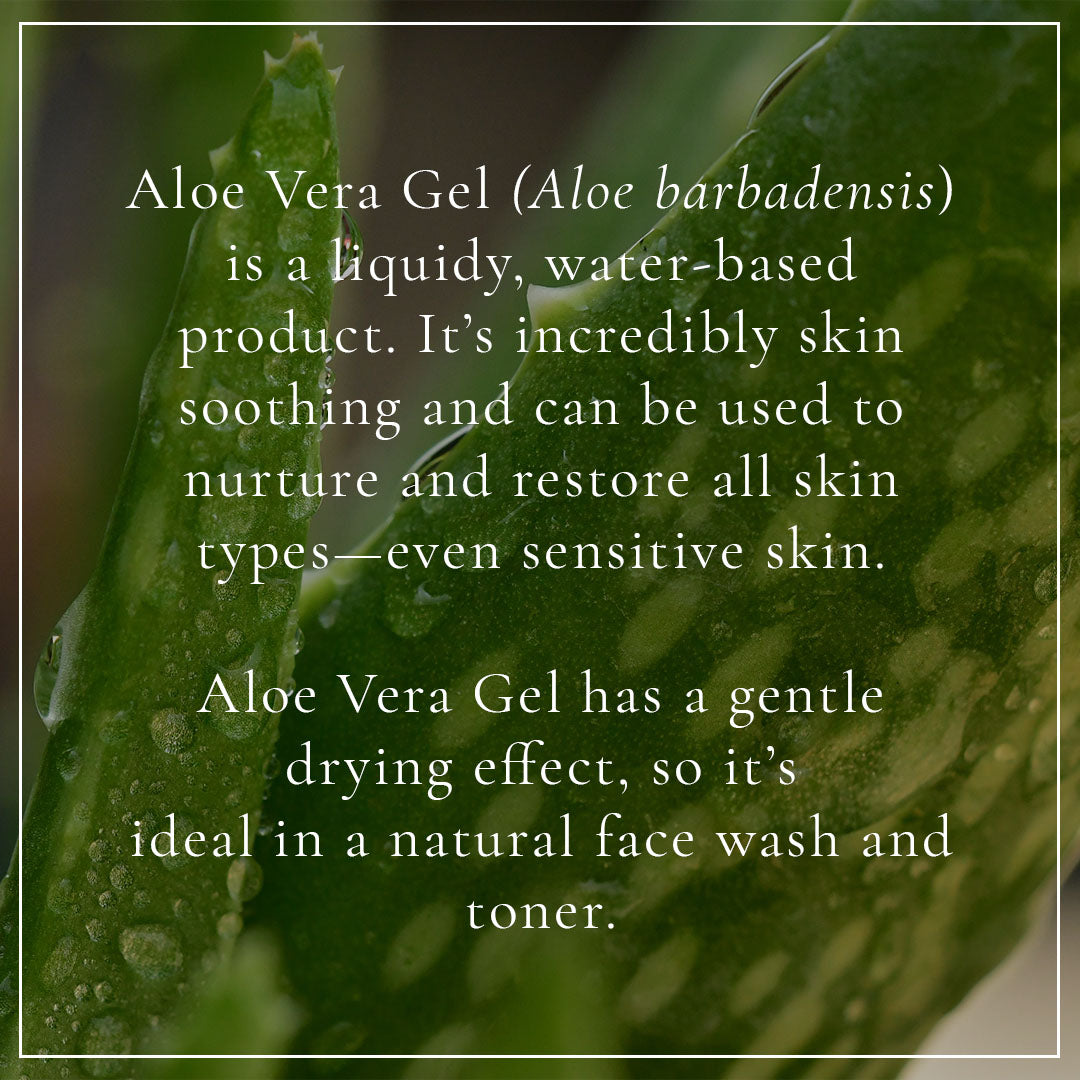
Homemade skin toner
Organic skin toner conditions pores so they don’t produce excess oil, and aren’t open to collecting impurities.
The best toner for your skin will take into account your skin’s unique needs, and help keep it balanced and clear throughout the day. Try carrying a small bottle of your favorite toner to spritz your face throughout the day. (This is great for conditioning your skin between morning and night when you can use your other products.)
Aloe vera gel and hydrosols make the best toner ingredients! You can use them individually, blend them together, and even include a few essential oils, like tea tree oil, peppermint oil, or frankincense oil.
If you use essential oils in your skin toner, remember that hydrosols and aloe vera gel are water-based products… and oil and water don’t mix! The essential oils won’t automatically stay dispersed through the base of your skin toner. We definitely want the essential oils dispersed, especially for a product being sprayed on the face.
You can use a product called “Solubol,” which is a natural dispersant, to keep the essential oils distributed and protect your skin.
When a plant is steam distilled, the water becomes infused with the plant’s water-soluble properties. This water becomes an aromatic, therapeutic hydrosol! Hydrosols are gentler than essential oils, yet incredibly effective. We can use them undiluted, directly on the skin.
Homemade natural moisturizer
No organic skin care routine is complete without a good natural moisturizer! It should include all-natural ingredients your skin recognizes as “food.” Plant-based moisturizers help hydrate skin and replenish its natural ability to repair itself on deep levels.
Pure carrier oils and essential oils are perfect ingredients for a DIY natural moisturizer. You can choose one carrier oil your skin likes best, or blend a few together to create the texture and effects you prefer. And good news! Essential oils naturally stay dispersed through carrier oils, so no Solubol dispersant is needed.
Essential oils for organic skin care: Safety 101
I love using essential oils for organic skin care! They allow us to customize many different products and target specific issues. Some essential oils even encourage the skin to repair and rejuvenate itself. Each skin type is nourished by different oils, and I’ll give specific suggestions for you below.
Before adding essential oils to your organic skin care routine, be aware of some safety guidelines.
Essential oils are strong and very highly concentrated. We never want to apply them undiluted to the skin, especially the face. I suggest a 0.5 - 1% dilution of essential oils in face care blends. This is about 3–6 drops of essential oil for every 1 oz (30 ml) of carrier.
The last thing we want organic skin care to do is to cause irritation. Since essential oils are so highly concentrated, a single drop contains a huge amount of nourishing plant support! Even at a low dilution of 0.5–1%, please remember to keep all organic skin care with essential oils away from your eyes and mucous membranes.
And remember… listen to your skin!
If your skin doesn’t respond “glowingly” to an ingredient or product, discontinue using it. You have plenty of other options to create a safe, nourishing organic skin care routine that you absolutely love.
Ready to learn some of the best essential oils and other products that will work for your skin type?
DIY organic skin care for acne-prone skin

5 effective essential oils for acne-prone skin
These essential oils are some of the most potent natural cleaners in the aromatherapy world! Most are even useful in cleaning blends for the home, such as tub and tile sprays.
(The only one I wouldn’t always use for home cleaning is patchouli, and that’s because its sesquiterpene content makes it heavier, and more suited for organic skin care blends.)
- Lemongrass ct. rhodinol Oil (Cymbopogon citratus ct. rhodinol) - Like thyme, there are multiple varieties of germ-reducing lemongrass oil. This unique variety of lemongrass oil contains rhodinol, which soothes irritation and redness.
- Manuka Oil (Leptospermum scoparium ct. east cape) - Manuka essential oil is rich in ketones, natural components that help cleanse and purify skin’s surface. Manuka oil can also help tone pores.
- Patchouli Oil (Pogostemon cablin) - Patchouli essential oil has a gift for inspiring peace, which is very welcome in acne-prone skin care! It’s often used to calm sore spots and create a smooth, serene complexion.
- Tea Tree Oil (Melaleuca alternifolia) - A classic essential oil for natural cleaning! Tea tree oil has an incredible ability to reduce germs (without irritating skin) is largely thanks to the component terpinen-4-ol. Tea tree oil is particularly potent and so it is important to highlight again the importance of diluting tea tree essential oil in a carrier oil such as jojoba oil or coconut oil.
- Thyme ct. linalool Oil (Thymus vulgaris ct. Linalool) - There are several kinds of thyme essential oil, and all can be used to get rid of germs. The linalool variety is exceptionally skin nourishing!
3 carriers for acne-prone skin
You’ve probably heard it before... “Don’t put oil on your skin!”
It’s common advice. The idea is that any kind of oil clogs pores and increases acne.But that’s not always true. The carrier oils below are low or non-comedogenic, meaning they don’t clog pores.They even have soothing properties that can help calm redness and bumpiness, and reduce the number of impurities and dead skin cells on the skin’s surface.
This means these carrier oils nourish acne-prone skin and help reduce breakouts.
- Argan Oil (Argania spinosa) - Another 0 on the comedogenic scale! Argan is a delicate oil-rich with vitamin E. It can help prevent excess oil production and treat acne breakouts.
- Hemp Seed Oil (Cannabis sativa) - Rated 0 on the comedogenic scale, hemp seed oil feels light, silky, and moisturizing. It comes from the Cannabis plant (yes, that plant!) but contains no THC or CBD.
- Tamanu Oil (Calophyllum inophyllum) - Only a 2 on the comedogenic scale, tamanu oil is often used in organic skin care for scars. It has a thick consistency, and is great for spot treatments and to fade acne scars.
Your carriers should be as natural as possible and 100% organic and unprocessed in any way. The more they’ve been engineered or processed, the higher the potential that their natural properties are out of balance.
3 hydrosols for acne-prone skin
A few spritzes of these hydrosols can calm inflamed skin, redness and irritation, relieve sore and tender spots, and reduce impurities that lead to breakouts—such as germs and excess oil. These hydrosols make the best toners and facial cleansers for acne-prone skin because they do more than help prevent and calm breakouts. They can also help nourish damaged skin to restore a smooth, healthy appearance. Skin that has small scars or uneven coloring drinks up these hydrosols!
- Carrot Seed Hydrosol (Daucus carota) - Carrot seed hydrosol is like a tonic for acne-prone skin! It gently smooths uneven textures and discolored areas. Spray a little extra on small scars.
- St. John’s Wort Hydrosol (Hypericum perforatum) - No matter what’s going on with your skin, St. John’s wort knows what to do. It helps clear away impurities and encourages the skin to repair itself layer by layer.
- Yarrow Hydrosol (Achillea millefolium) - Often used to protect vulnerable skin from threats, yarrow hydrosol cleanses skin’s surface while soothing tender, sore spots.
DIY organic skin care for combination skin

5 essential oils for combination skin
Combination skin needs essential oils that have “intuition.” These essential oils understand what skin needs in different situations—whether it’s calming redness, reducing oil, helping skin retain moisture, purifying skin’s surface, toning pores, caring for scars, restoring skin after damage, and even reducing the effects of aging.
They’re truly multi-talented oils, encouraging skin to find its most radiant health and balance.
- Bergamot Mint Oil (Mentha citrata) - With a chemistry very similar to lavender essential oil, bergamot mint essential oil can calm tender red spots and discoloration.
- Cedarwood Oil (Juniperus virginiana) - Cedarwood is a traditional natural ingredient for cleansing and conditioning skin, and is so gentle it’s often used in children’s blends.
- Frankincense Oil (Boswellia carterii) - Frankincense oil is a classic for supporting the skin’s natural repair process. It can calm irritated spots, and create an even, glowing complexion.
- Geranium Oil (Pelargonium × asperum) - Geranium oil has a floral aroma is often used for emotional support. The cooling touch of the essential oil can calm skin so it doesn’t become irritated under stress.
- Ylang Ylang (Complete) Oil (Cananga odorata) - Ylang ylang has a special gift for helping skin retain moisture. It’s often used in luxurious, floral, hydrating skin lotions.
3 carrier oils for combination skin
If you have combination skin, your face is dry in some areas and oily or acne-prone in others. You might have occasional breakouts along your T-zone. You need oil control and acne care… but you need rich moisture, too. You also want to condition and tone your pores, so they don’t over-produce oil or collect impurities.
The overall goal is to balance the skin, so it has a clear, even, radiant complexion. Here are some natural carrier oils that beautifully balance hydration with conditioning pores. Some even help deter germs from collecting on skin.
- Baobab Seed Oil (Adansonia digitata) - Infusing skin with moisture, calming irritation, and leaving pores open to breathe make baobab oil great for combination skin!
- Cranberry Seed Oil (Vaccinium macrocarpon) - Rich in vitamins E and A, and Omega-6 and Omega-3 fatty acids, cranberry seed oil is ideal for skin that’s drier and tends to break out.
- Jojoba Oil (Simmondsia chinensis) - Jojoba is actually a liquid wax. It closely resembles the skin’s natural oil (sebum). Think of it as “convincing” skin that it’s already moisturized, so it doesn’t produce excess oil!
3 hydrosols for combination skin
Rinsing your skin or spritzing it periodically with a nourishing hydrosol can keep your skin conditioned and balanced, so it doesn’t respond to stress by producing too much oil or breaking out.
These hydrosols are gently toning, without making skin feel chalky or too tight, and create an even, soft, matte appearance. They can also help skin repair itself after damage and scarring.
- Blood Orange Hydrosol (Citrus sinensis) - Blood orange hydrosol has a sparkly, sweet aroma. It helps clarify pores and reduce impurities—perfect for areas prone to acne.
- Lavender Artisan Hydrosol (Lavandula angustifolia) - Lavender is one of the most well-known skin nourishers in the plant kingdom. A spritz of this hydrosol helps calm red, sore spots while protecting healthy skin from the threat of acne causing bacteria.
- Rose Geranium Hydrosol (Rosa × damascena/Pelargonium × asperum) - A beautiful blend of geranium (which germs don’t like!) and rose (which helps keep skin hydrated and clear). This hydrosol feels cooling to warm, puffy areas.
DIY organic skin care for oily skin

5 essential oils for oily skin
When using essential oils for oily skin, we want to create a drying, toning effect, without stripping skin’s moisture or causing irritation. (Skin that’s too dry is more prone to developing fine lines and wrinkles, and has fewer resources to draw on to maintain its bounciness and health.)
Pores respond beautifully to these essential oils! (Germs, however, tend to run the other direction.)
- Cypress Oil (Cupressus sempervirens) - Cypress essential oil is an ally when drying, toning actions are needed. It can help condition pores so they don’t produce excess oil.
- Grapefruit (Rose) Oil* (Citrus paradisi) - Grapefruit oil inspires a sunny outlook—and helps skin look bright, too! It can soothe the skin’s reactions to stress, so it appears less red, oily, and puffy.
- Juniper Berry Oil (Juniperus communis) - Skin has a natural process for releasing toxins. Juniper berry gently supports this process, while helping reduce the appearance of puffiness.
- Lime Oil* (Citrus aurantifolia) - Often used for natural cleaning, lime essential oil has a talent for purifying skin and toning pores, to create a radiant, clear complexion.
- Sandalwood Oil (Santalum album/Santalum paniculatum) - One traditional use for precious, woodsy sandalwood essential oil is to clear excess moisture without stripping the skin’s nutrients.
*Lime and grapefruit are phototoxic citrus essential oils, meaning they can cause negative reactions if they’re applied topically to the skin, and that skin is exposed to the sun. You can use them safely in your organic skin care blends IF you consider the following:
- Use distilled lime essential oil. When lime essential oil is distilled, instead of cold-pressed, it is NOT phototoxic.
- If you must use cold-pressed lime essential oil, dilute it at 4 drops or less per 1 oz (30 ml) of carrier.
- For grapefruit, dilute it at 24 drops or less per 1 oz (30 ml) of carrier.
Follow the guideline of using a 0.5 - 1% dilution in your organic skin care, and you’ll stay in the safe ratios for lime and grapefruit.
3 carrier oils for oily skin
If your skin is oily… why would you use oil-based organic skin care?
Because the right kind of carrier oil for your skin can actually help control oil levels, creating a matte, soft look. The carrier oils below have light, silky, non-greasy textures and absorb quickly into the skin. They can nourish, condition, and repair, so pores are no longer stressed into producing too much oil, and redness is toned down.
- Baobab Seed Oil (Adansonia digitata) - Baobab is a delicate oil with a balance of Omega-6 and Omega-9 essential fatty acids. Pores drinks in these nutrients, staying balanced so they don’t over-produce oil.
- Castor Oil (Ricinus communis) - Don’t be fooled by castor oil’s thick, luxurious texture—it deeply, quickly penetrates the skin (so it doesn’t get a chance to clog pores), and helps reduce germs.
- Hemp Seed Oil (Cannabis sativa - Light and silky, hemp seed oil absorbs quickly into the skin to offer moisture, nutrients, essential fatty acids, and vitamins—without clogging pores.
3 hydrosols for oily skin
Oily skin wants to be continually reminded that it has all the hydration it needs.
These hydrosols are the best toners for oily skin because they have a drying effect that leaves skin radiant and dewy, rather than oily. They can also reduce impurities.You can carry one with you to spritz your face throughout the day, keeping oil levels in check and regularly toning pores.
- Elderflower Hydrosol (Sambucus caerulea) - Steam distilled from the elder tree, elderflower hydrosol helps tone the skin and calm the appearance of red puffiness.
- Rosemary Hydrosol (Rosmarinus officinalis) - Rosemary hydrosol helps keep the skin’s surface clean while penetrating deeper layers to encourage the skin’s natural repair process—from the inside out.
- Rosemary & Yarrow Hydrosol (Rosmarinus officinalis/Achillea millefolium) - Cooling and refreshing, this blend of rosemary and yarrow hydrosols both energizes skin’s complexion and calms irritated reactions. It can also purify the skin.
Listen to your skin and have fun!
Along with customizing your recipes, a great thing about making your own organic skin care is when your blends run out, you can easily make more!
You can experiment with various essential oils for your skin type, or make a facial cleanser with a different ratio of aloe to Castile soap to carrier oil.
Remember to blend safely, listen to your skin, and have fun!







